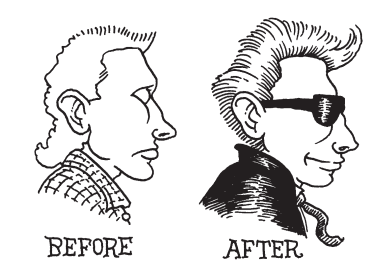Note: This guide is intended to help provoke thought and to generate discussion in your reading group. You are encouraged to use the following questions to stimulate lively conversation, to increase your enjoyment and appreciation of McInerney’s novel, and just generally to understand or face up to your incipient and aching awareness of lost youth.
1.
Well God, has it really been twenty years?
2.
Did you see the movie Bright Lights, Big City before you read the book? And seated in non-stadium seating in that small-town theater in Virginia beside the first girl you ever had sex with, did it seem like New York City just might as well have been on another continent? Didn’t some of your high school classmates suffer terrible hunting and farming injuries each year? And was your sense of Beauty so unrefined that you thought the movie was “pretty cool”? Didn’t you have a flat-top? And did you get the suspicion, years later, that you were not the first person your date for the movie had had sex with, her assurances to the contrary notwithstanding?
3.
And then did you read the novel for the first time in college, which did not have a dining club and was far too close to the small town you grew up in? And what was your response? Wasn’t your response that though it did seem “better than the movie,” it still seemed so exotic in setting and action as to seem almost unintelligible? Hadn’t Nancy Reagan sort of convinced you that if you tried cocaine, or really even glanced at it or got inside the same room with it, that you would immediately die? Remember Len Bias?
4.
And remember the hip young professor who taught the novel in a contemporary American literature course at the agriculture and engineering university where you went to discover art? Remember how he brought in a ghetto-blaster and played the Talking Heads song that is mentioned in the book and how then you went out and bought a Talking Heads cassette tape in an independent, non-chain record store with unwashed clerks who looked a lot like your professor and were just crazy about Dinosaur Jr.? And smoked cigarettes during class, this professor did, remember? And how he explained the whole novel in terms of a surface/depth matrix that implicated our superficial times? And how McInerney’s use of the second person, which, as you know now but did not then, a writer should really never use, works in Bright Lights because it is actually a disguised first person? And how the point of view reinforces theme and character because the...
You have reached your article limit
Sign up for a digital subscription and continue reading all new issues, plus our entire archives, for just $1.50/month.
Already a subscriber? Sign in





